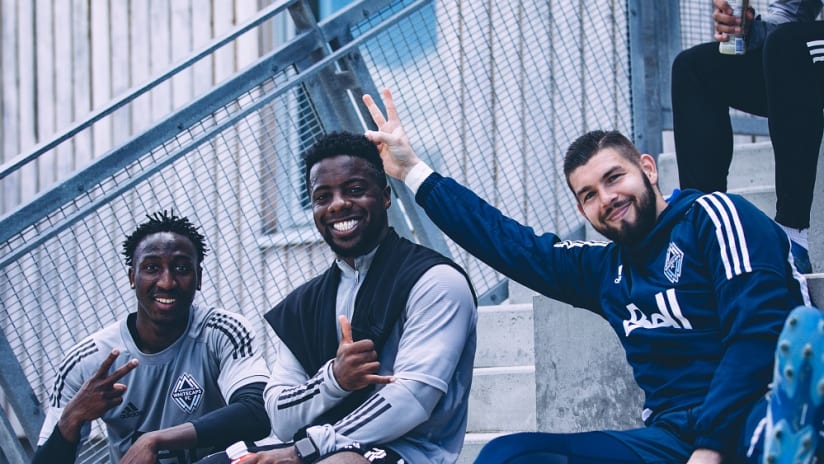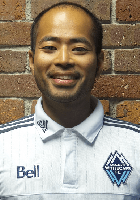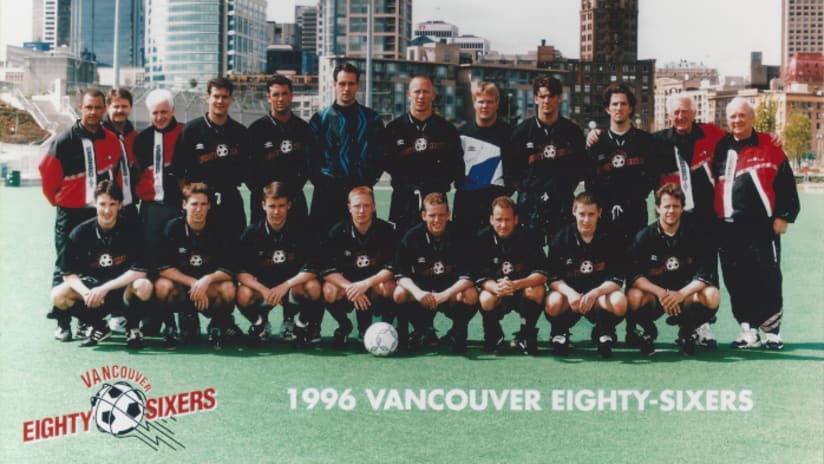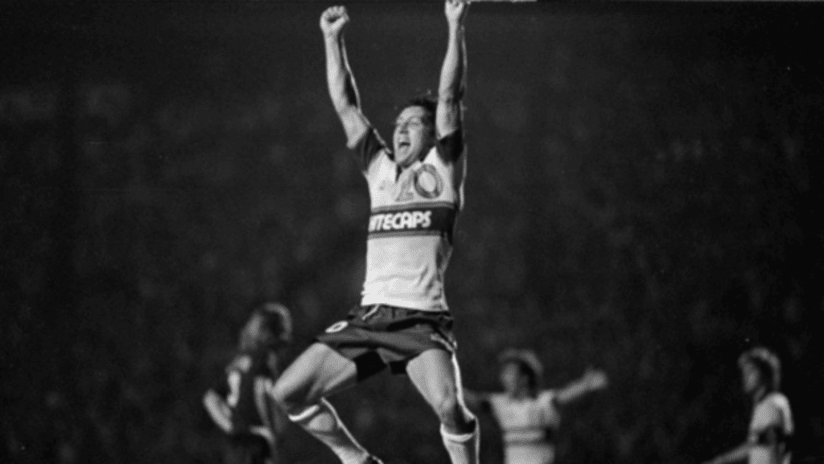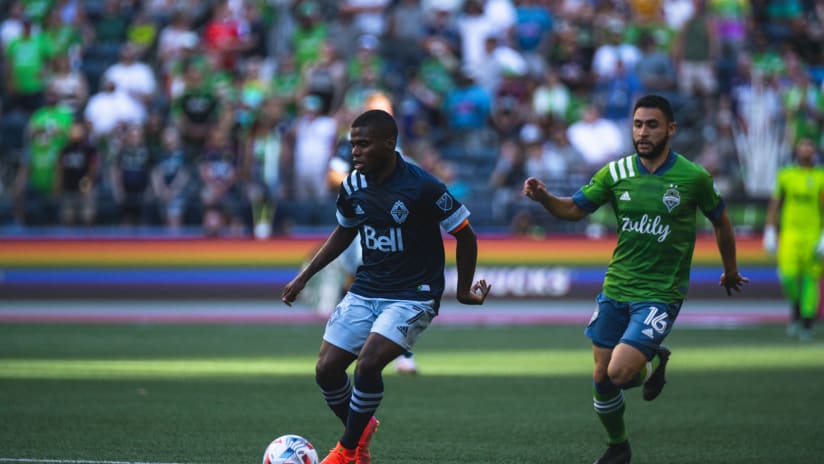On Saturday, June 27, the country celebrates Canadian Multiculturalism Day. Visit canada.ca for a list of events to celebrate the various cultures that bring Canadian society to life.
29 players. 14 birth countries. 13 languages.
Four coaches. Three birth countries. Six languages.
That is Whitecaps FC in a nutshell - differences in identities and cultures, with a sense of belonging working toward one goal.
And this is not something that the club stumbled upon. It's something the club searches out.
"Diversity is a big resource at every level and football is no different," says assistant coach Vanni Sartini in English - one of three languages he's fluent in.
That does even not include German, which he could read and understand, and Japanese, which he is currently studying.
"When you have people from different backgrounds, they can bring the best from their background and contribute to something new, and challenge the status quo and bring a different point of view," explains Sartini. "It builds new information, something new to relate with. And it makes you think in a different way, allows you to have a broader perspective."
'IT'S A BEAUTIFUL THING'
"You have guys who come from very structured and very tactical schools, and you have guys who come from places where the tactical aspect is a little more loose, and it’s more geared toward individual skills," says Sartini. "In this kind of mix, if you’re able to take the best from the different approaches, it’s a fantastic resource for us and for the players."
The sight at training is a cohesive unit. The sounds are a harmonic blend of different tongues speaking the same language of football.
At one end, Sartini is going over backline tactics in Italian with Iraqi international Ali Adnan, and in Spanish with Argentine Érik Godoy. Then there's Marc Dos Santos discussing the team's shape in Portuguese with Janio Bikel, who was born in Guinea-Bissau, while his younger brother Phil checks in with Maxime Crépeau in French. Goalkeeper coach Youssef Dahha, born in Belgium and raised in Morocco, walks over to interject in Arabic to provide instructions to Tunisian Jasser Khmiri.
"It's a beautiful thing," says Sartini.
'THIS IS OUR FAMILY'
Perhaps majority of the time spent together by a team is actually off the pitch - whether breaking bread, travelling on the road, or even just hanging out during off days.
A number of friendships have grown between players from different parts of the world.
You see it in the silly triumvirate of Adnan, Inbeom Hwang, and Russell Teibert. Or the buddy cop-type pairing of Khmiri and Yordy Reyna. Then there's Ryan Raposo and Georges Mukumbilwa, two young players who have grown close since becoming teammates, both coming from families who immigrated to Canada.
“They are everything to me. All my family is in Iraq but I have my second family here. I’m really grateful for them for taking care of me," said Adnan in an earlier interview with CTV Vancouver about Mango and Rosa, his nicknames for Hwang and Teibert.
“This is our family out here so we take care of each other. We check in with each other, make sure everyone’s okay. That’s very important for us especially because we’re all away from our families,” says Teibert.
"Jasser is a good guy and he's just really fun to be with," says Reyna in Spanish. "We have people from Africa, South America, and North America, and despite the differences in cultures, we buy in together and we are one."
"Before, teams would usually sign foreign players from the same country in order to have a pack. Our guys are the best example that you can take the best from each culture and be friends, respecting the differences," shares Sartini. "Our coaching staff are friends, besides being colleagues. We are people of different languages and different religious beliefs."
'A METAPHOR FOR OUR CITY'
When it comes to recruiting, the breadth of the coaching staff's relationships casts a wide net for players that may fit the profile they're looking for to bring to Vancouver.
"We bring our own networks from Canada to Portugal to Germany to Youssef’s North African contacts. If you look at the languages we speak in the technical staff, it’s French, Italian, English, German, Spanish, Portuguese, and Arabic. I’m learning Japanese too," says Sartini. "It’s very few countries that are off-limits to us in terms of communication and recruitment."
The internet boom in the past two decades has made a world of difference too.
"Until the 1990’s and the early 2000’s, it was very hard to know what teams were doing in the other parts of the world, so it was a rigid way of thinking. There was an Italian way of playing soccer, a German way, a French way," says Sartini. "Now, technology has allowed you to see games everywhere and to take the best from every soccer culture. Now it’s much easier for a player coming from Japan, for example, to come here and play well in MLS."
And what you have as a result is a team made up of players of different skin hues coming from different cultures.
A team that a multicultural Canada can identify with when they cheer them on as they take to the pitch.
"It’s a metaphor for our city and our country," says Sartini. "We know we’re representing Vancouver which is a very multicultural city, and Canada which is a very multicultural country where a lot of people came out here as immigrants. It’s a perfect representation for the place we represent."

